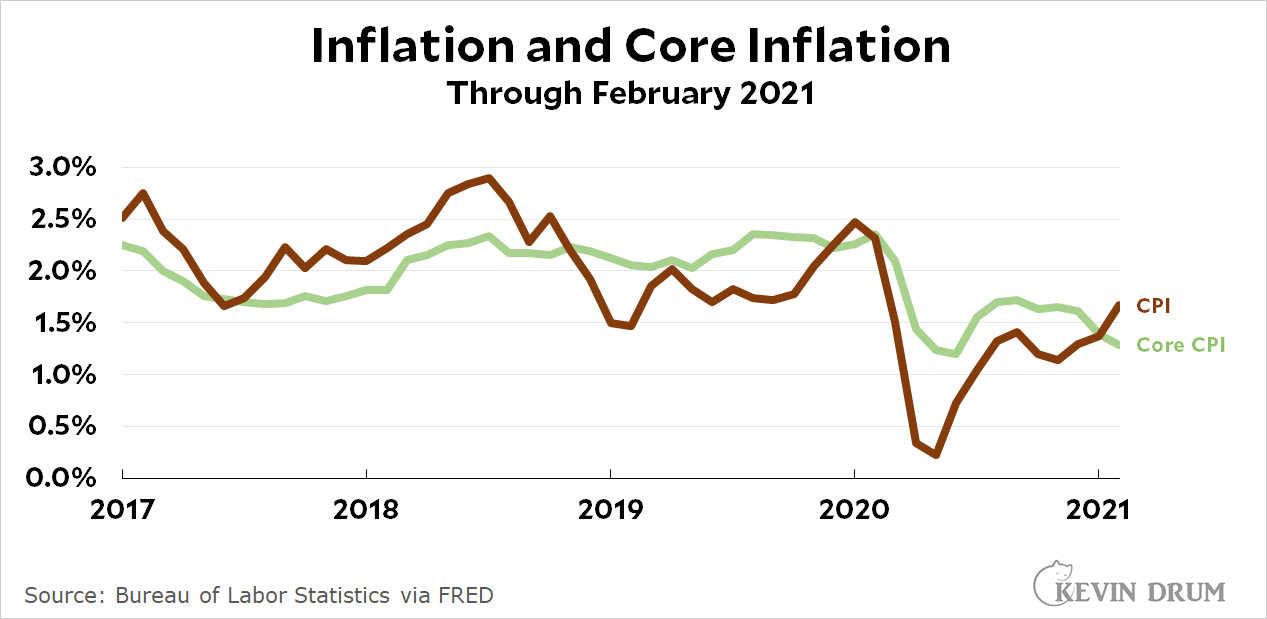HR1, the massive voting rights bill supported by Democrats, has no chance of passing in the Senate. Republicans will filibuster it, and Democrats don't have the votes to eliminate the filibuster.
However, over at my old home, Ari Berman reports that Stacey Abrams has an idea about the filibuster:
Abrams proposes tweaking it to allow major voting rights legislation to pass, and she thinks her plan can get reluctant Democrats on board. In the same way that Democrats can pass budget bills and confirm judges and Cabinet members with a simple majority, legislation protecting voting rights should also be exempt from the 60-vote requirement, Abrams says.
“The judicial appointment exception, the Cabinet appointment exception, the budget reconciliation exception, are all grounded in this idea that these are constitutionally prescribed responsibilities that should not be thwarted by minority imposition,” she says. “And we should add to it the right to protect democracy. It is a foundational principle in our country. And it is an explicit role and responsibility accorded only to Congress in the elections clause in the Constitution.”
Put aside the fact that there are plenty of other exceptions to the filibuster rule, and almost none of them have been put in place merely because they affect "constitutionally prescribed responsibilities." They've mostly been put in place either out of pique or just because the Senate felt like it.
The bigger issue here is a fundamental misunderstanding of what it means to "eliminate" the filibuster. To explain what I mean, here's the process by which, for example, judges were exempted from the filibuster:
- In 2013, Republicans filibustered three Democratic nominations to the DC Circuit Court and said that they would filibuster anyone else too. This pissed off the Democrats.
- On October 31, Harry Reid moved to reconsider the vote to end debate (i.e., end the filibuster) on one of the judges, Patricia Millett.
- The motion failed to get 60 votes to pass, which meant that debate remained open and Reid could not move on to a confirmation vote for Millett.
- Reid raised a point of order, claiming that only a majority was required to cut off debate for appeals judges.
- The presiding officer ruled that Reid was wrong.
- Reid appealed the ruling.
- It requires a majority of senators to sustain a parliamentary ruling, and this one failed, 48-52, with all Republicans voting to sustain and nearly all Democrats voting not to.
- The presiding officer announced that because his ruling hadn't been sustained, there was now a new rule in place that required only a majority vote to invoke cloture on appellate judges and proceed to a confirmation vote.
Do you see what happened? There is no "filibuster rule" to be "eliminated." The majority party in the Senate can pass any bill it wants at any time with nothing more than a majority vote. To the extent that there's any "rule," it's merely an unspoken agreement not to pass bills by majority vote as long as the other guys don't do it first.
So sure, if they can rustle up 50 senators then Democrats can pass HR1 by majority vote and say that they intend to do it just this once and only for voting-rights bills, but that's meaningless. No matter what they say, Republicans aren't required to buy it. And they won't. Once Democrats have done it a single time, Republicans will feel free to pass any legislation they feel like with no more than a majority vote.
 This is what happened with judges. Reid's motion applied only to appellate judges, but that was hardly binding. When Republicans took over the Senate, Mitch McConnell immediately followed Reid's precedent and nuked the filibuster for Supreme Court justices too.
This is what happened with judges. Reid's motion applied only to appellate judges, but that was hardly binding. When Republicans took over the Senate, Mitch McConnell immediately followed Reid's precedent and nuked the filibuster for Supreme Court justices too.
In the end, the mighty filibuster, the scourge of American governance for so many decades, was little more than one of those emperor-has-no-clothes things. As soon as a single person pointed out the truth, everyone blinked and suddenly realized that there had never been anything there in the first place. The majority party had always had the ability to pass anything it wanted with 51 votes. It took nothing more than the will to do it and the recognition that the other party could do it too. Far from requiring a nuclear option, it turns out that ending the filibuster required only the faintest breath to make it vanish in the breeze like a dried out dandelion.


 This is what happened with judges. Reid's motion applied only to appellate judges, but that was hardly binding. When Republicans took over the Senate, Mitch McConnell immediately followed Reid's precedent and nuked the filibuster for Supreme Court justices too.
This is what happened with judges. Reid's motion applied only to appellate judges, but that was hardly binding. When Republicans took over the Senate, Mitch McConnell immediately followed Reid's precedent and nuked the filibuster for Supreme Court justices too.


